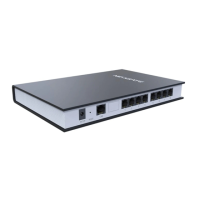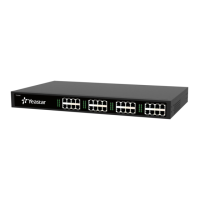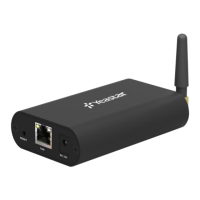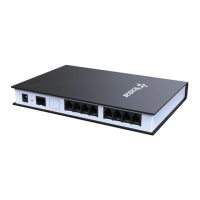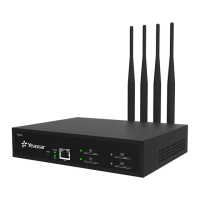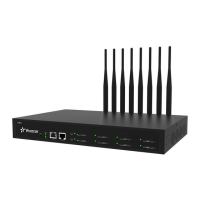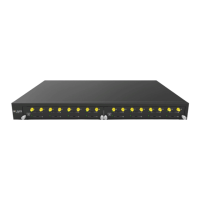To change the user agent parameter of asterisk.
2) NAT
Figure 4-8 NAT Settings
Table 4-8 Description of SIP General Settings
STUN (Simple Traversal of UDP through NATs) is a protocol for
assisting devices behind a NAT firewall or router with their packet
routing.
The STUN server allows clients to find out their public address, the
type of NAT they are behind and the internet side port associated by
the NAT with a particular local port. This information is used to set up
UDP communication between the client and the VOIP provider and so
The IP address that will be associated with outbound SIP messages if
the system is in a NAT environment.
External Host
Alternatively you can specify an external host, and the system will
perform DNS queries periodically.
This setting is only required when your public IP address is not static.
It is recommended that a static public IP address is
used with this
system. Please contact your ISP for more information.
External
Refresh Interval
Used to identify the local network using a network number/subnet
mask pair when the system is behind a NAT or firewall.
Some examples of this are as follows:
“192.168.0.0/255.255.0.0”: All RFC 1918 addresses are local
networks;
“10.0.0.0/255.0.0.0”: Also RFC1918;
“172.16.0.0/12”:Another RFC1918 with CIDR notation;
“169.254.0.0/255.255.0.0”: Zero conf local network.
Please refer to RFC1918 for more information.
Global NAT configuration for the system; the options for this setting
e NAT. Ignore address information in the SIP/SDP headers
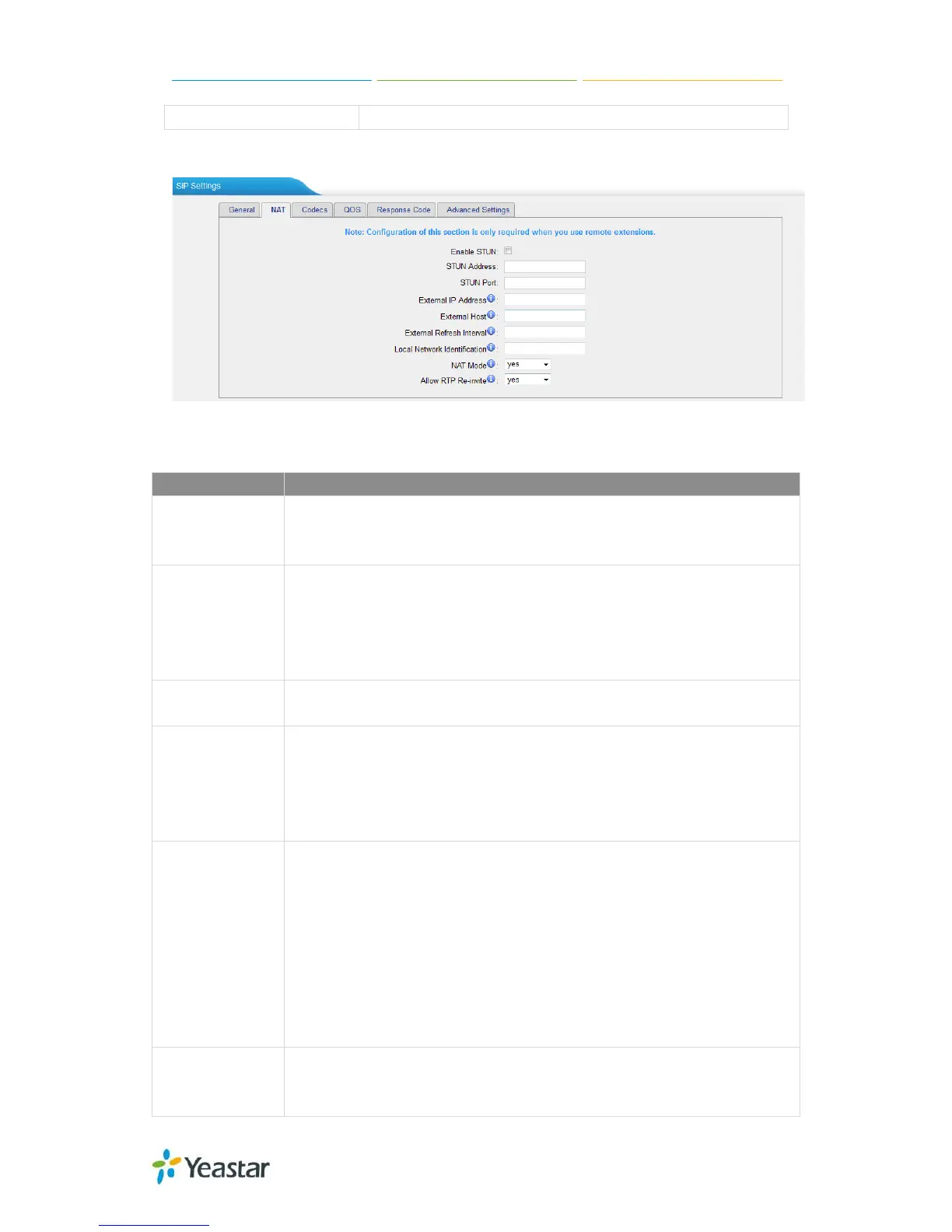